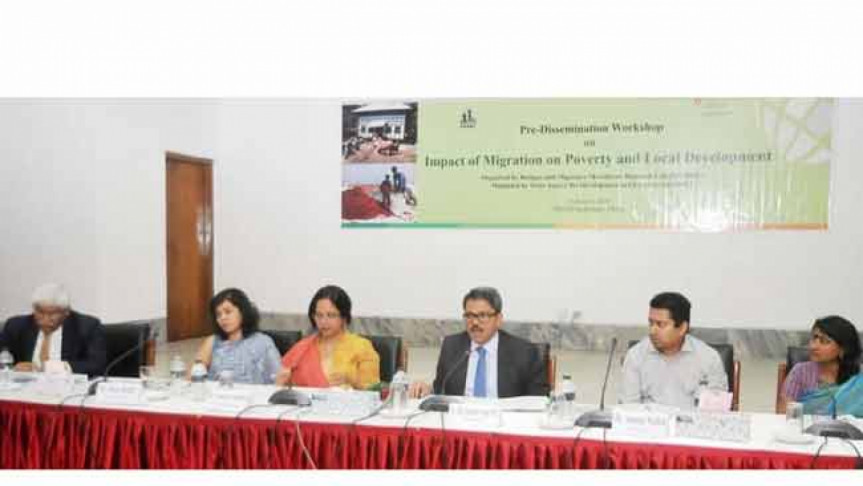Make migration process friendly one: Shahriar

State Minister for Foreign Affairs M Shahriar Alam on Wednesday said all should strive to make the migration process a migrant-friendly one as migration holds great potentials for development.
‘Still, many of our migrants go through various difficulties during their migratory phases,’ he said adding that migration is a complex phenomenon that involves many stakeholders.
The State Minister was addressing a pre-dissemination workshop on ‘Panel Survey on Impact of Migration on Poverty and Local Development’ at Cirdap auditorium in the city, reports the UNB.
Chairman of Refugee and Migratory Movements Research Unit (RMMRU) Dr Tasneem Siddiqui, among others, spoke on the occasion.
In Bangladesh, Shahriar Alam said, some major impediments such as the high cost of migration, lack of skills of the migrants and regional imbalances in the migration flows often undermine the benefits of migration.
‘This is also important to realise the full potentiality of migration to our national economy and development. I urge all concerned to come forward and work together to make a better future for our migrants,’ he said.
Last year, the number of Bangladeshis went abroad with jobs exceeded 10 lakh.
Over the recent years, the international community has acknowledged the contribution of migration to economic development in major global declarations including the ‘2030 Agenda’.
This Agenda is ‘a plan of action for people, planet and prosperity’ which identifies the eradication of poverty as one of the greatest global challenge.
In the global migration arena, the State Minister said, Bangladesh has been playing a leadership role in enhancing dialogue and cooperation in the migration and development discourse.
The Ministry of Foreign Affairs actively negotiated in the inclusion of migration in 2030 Development Agenda.
Shahriar said this resulted in explicit targets to facilitate orderly, safe, regular and responsible migration through the implementation of planned and well-managed migration policies to reduce the costs of remittances and protect rights and promote safe and secure working environments for all migrant workers, in particular women migrants.

 NTV Online
NTV Online




